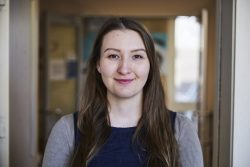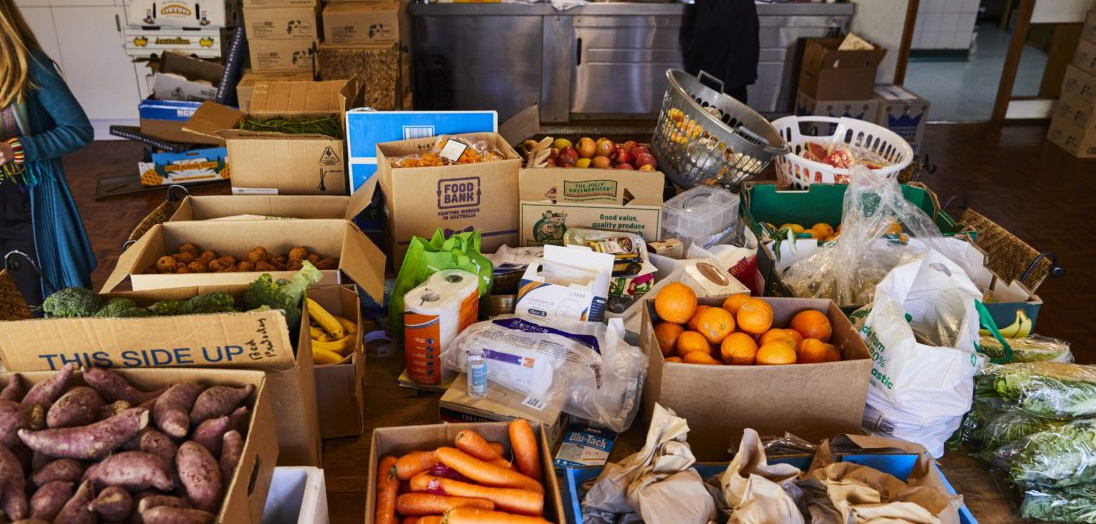Where Community Lies: people seeking asylum in COVID-19
04 June 2020

Reflections from the Frontline
 Community Development Coordinator, Amelia reflects on the impact that the pandemic has had on people seeking asylum in Australia. It’s Wednesday. It is cold outside but I wouldn’t know. I’ve done over 11,000 steps so far today. My phone has been counting whilst I run up and down these hallways, carrying boxes, making mental notes, chatting on the phone, sweat on my brow.
Community Development Coordinator, Amelia reflects on the impact that the pandemic has had on people seeking asylum in Australia. It’s Wednesday. It is cold outside but I wouldn’t know. I’ve done over 11,000 steps so far today. My phone has been counting whilst I run up and down these hallways, carrying boxes, making mental notes, chatting on the phone, sweat on my brow.
I always seem to have trouble getting down these hallways. Once it was because of the people, bustling through, busy and bright, languages of various origins bouncing off the walls and bumping into each other. I could hardly walk a metre without stopping to say hello to someone or answering a question or running into a colleague who was rushing in the opposite direction, facing the same enthusiastic greetings and requests for help. These days the people are gone and instead I struggle down the halls through a sea of boxes and bags packed and organised into their delivery routes, waiting to be distributed to those in need tomorrow.
Our centre at Westmead is not just a building, it’s a place for community. Normally people gather here each day to collect foodbank, see a caseworker, access legal or employment support, cook or share a meal with others, spend time in our community garden, learn English, or just sit and have a cup of tea.
As the Community Development Coordinator at JRS my role is to organise our community programs and develop new programs in response to what the people we serve, want and need. I also organise events and celebrations.
One great pleasure of my role is spending time with people. I try to get to know our community members, build relationships and then see how I can involve and include them. I want our clients to walk through our doors and feel welcome and important, because they are.
But how do you build community when you’re unable to gather? In the absence of bodies in the building where does community lie?
Since the outbreak of COVID-19, our community centre in Westmead has had to be closed to community activities and face-to-face appointments. Instead we are in crisis response providing casework, employment support, and emergency relief over the phone, and home delivery food bank support.
People seeking asylum have been hit particularly hard by the pandemic and this already vulnerable group has been flung even further into destitution and hardship. They are ineligible for all of of the new Federal Government’s temporary COVID-19 support packages and many have lost jobs in the casual sector. We are working on basic rights here; food, housing, and employment. Community programs have sadly not been the main focus of our current operation. However now that our new systems are functioning efficiently, we can start to consider how we can create space to connect again.
Coordinating food bank is one of my responsibilities but it used to be a lot less demanding. Three days a week our community members would come into the centre and choose their own grocery items with the help of volunteers. Now coordinating food bank is the task that I spend most of my time on and there always seems to be more to do.
The demand has grown so much and with a new home delivery model there are many pieces of the puzzle that need to come together for it to operate. I’m so thankful to our incredible volunteers, my colleague Jane and managers Maeve and Carolina who work on this with me; it’s a great team effort.
In the beginning the demand was increasing at such a rapid rate that at the end of each week we had to consider whether or not we’d have enough food to do deliveries the following week.
It was stressful worrying about the people who rely on us to provide for their basic needs. But thanks to so many generous donations we’ve been able to keep going.
In the 10 weeks that we have been doing home deliveries we haven’t missed a week yet.
The number of people receiving our food bank support is constantly increasing, but as of this week we’re doing over 250 deliveries, which reaches 700 people. Sometimes we get a donation and the items don’t even make it to the shelves, they just get packed straight into delivery bags. We are going through a seriously huge amount of food. It is tiring work and yet I feel energised and deeply satisfied by the community spirit of it all and am encouraged to keep going.
I can see that community is more than bodies in the same building. It’s a feeling; a connection. It’s the volunteers catching me in the hallway eager to help, ‘what’s next Amelia?.’
It’s the donations from churches, schools, companies, organisations, and individuals telling us ‘you are not alone in this, we are with you.’ It’s the texts of gratitude I receive from the recipients of our deliveries.
It’s our champion volunteers over 70, who must deal with stricter social distancing restrictions, emailing us weekly to ask when they can come back and help.
It’s my colleagues taking a deep breath together, pushing on, encouraging each other and laughing together amidst it all.
Community is the men, women and children seeking asylum who we serve whose importance and warmth is felt even more now in their absence. They may not be filling our hallways currently, but each box and bag of food represents someone out there who matters to us and who we miss.
Community is the antidote to isolation, the answer to a problem, the thing that keeps me going in a pandemic, the space where big things can happen. Being part of a community can be life changing and I’m privileged to witness the power of it at JRS.
~ Amelia Savage,
Community Development Coordinator
Please note, since the time of writing, in October 2020 the federal government announced its decision to slash support to people seeking asylum in the 2020-21 Budget. The existing amount allocated for supporting this group will be halved in the new budget indicating that more people will be excluded from support and left without a safety net over the coming 12 months. Read more.

